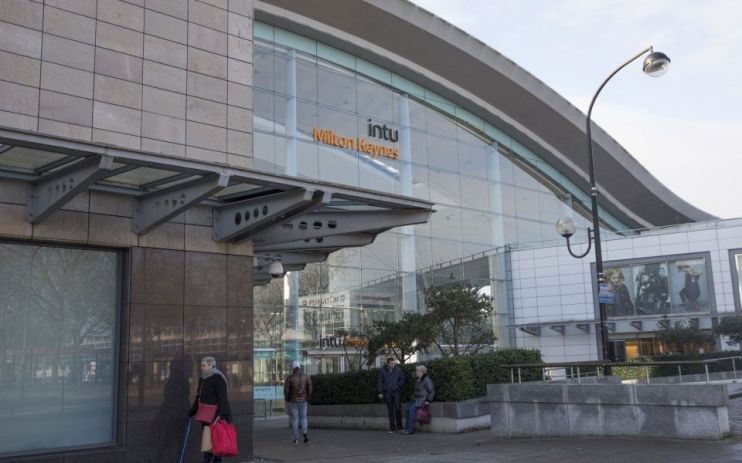Intu share price crashes as it cancels dividend amid mounting losses

Intu’s shares plummeted this morning as it cancelled its dividend and fell to an almost £900m loss for the first six months of 2019.
The retail landlord admitted there were “no quick fixes” as it blamed the wider retail collapse for its property woes.
Read more: JP Morgan downgrades shopping centre landlord Intu
Instead it embarked on a five-year turnaround strategy as new chief executive Matthew Roberts admitted the property developer requires “radical transformation”.
Shares dove 22.7 per cent lower to just 54.3p today.
The figures
Intu sank to a loss before tax of £896m, almost double the £486m losses it racked up in the same period in 2018.
Revenue fell marginally from £322.1m last year to £315m for its latest half-year as net rental income fell 18 per cent to £205.2m, and like-for-like net rental income dropped 7.7 per cent.
Net debt dropped slightly to £4.7bn as Intu paid down its huge debt pile with £153m from the sale of its Derby shopping centre.
Investors will receive no interim dividend, compared to one of 4.6p per share for its 2018 half-year.
Meanwhile Intu’s loss per share deepened to 61.7p, almost double 2018’s 36.2p per share loss.
Why it’s interesting
Summing up Intu’s half-year, investment bank Liberum simply described the results as “awful”.
“Intu’s H1 results show worsening valuation pressure on its shopping centres, over and above that already experienced by Hammerson,” it said, urging investors to sell.
The retail landlord has suffered amid a sector-wide downturn as stores shut up shop and launch company voluntary proposals (CVAs) designed to cut rents.
Major retailers like Toys R Us and Boots have announced waves of store closures, while other shopping centre stalwarts like Topshop have slashed rents in a bid to survive.
Intu’s decision not to pay an interim dividend follows its move to cancel a 2018 dividend.
The prospect of an equity raise is more likely now, Liberum added, concluding “there is little we believe management can do to ease pain”.
Emma-Lou Montgomery, associate director from Fidelity Personal Investing’s share dealing service, cited three reasons for the landlord’s poor results.
“Old-fashioned relationships with tenants, too much debt and a management team that’s not agile enough,” she said.
“Those three reasons alone are enough to deal with, without the added burden of a retail rout that’s seeing retailers shutting up shop, rents being drastically cut and consumers being ever-more demanding to boot.”
Read more: Landlords pick a fight with the growing use of CVAs
What Intu said
Matthew Roberts, Intu CEO, said:
“The first half of 2019 has been challenging for intu. We have experienced further downward pressure on like-for-like net rental income and property values resulting from a higher level of administrations and CVAs as some retailers struggle to remain relevant in a multichannel world.
These challenges, facing intu and the whole sector, have been well-documented and, while there are no quick fixes, I am confident that we can address them head on. Over the past nine months we have carried out the most comprehensive review of the business that intu has ever undertaken.
We know radical transformation is required and have developed a new, ambitious five year strategy to reshape our business and address the challenges we face, with a priority to fix our balance sheet. With the people changes we have made, we now have the right leadership team in place with the appropriate skill sets to deliver this plan and drive the business forward.
Regardless of current sentiment, one thing is clear: the physical store is not dying, it is evolving. The right store in the right location still plays a vital role in retailers’ multichannel strategies and we are starting to work with them as partners sharing the risks and rewards.
Our centres will also transform as we turn them into thriving communities – places where people want to live, work and have fun, as well as shop.
Change will not happen overnight, but I am confident we have the right plan in place and an energised, dynamic team to deliver it.”
Main image credit: Getty